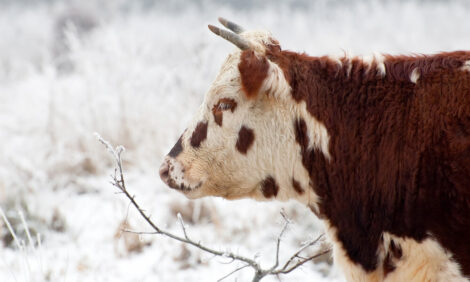



House Version of Farm Bill Fails to Address Cattle Market Reforms
WASHINGTON– Friday afternoon, the U.S. House of Representatives approved its version of the 2007 Farm Bill, and while there was positive development on country-of-origin labeling, R-CALF USA believes Representatives could have done more for the U.S. cattle industry.“We’re disappointed that the House version of the Farm Bill didn’t include any measures to limit captive supplies, which just allows meatpackers the continued ability to manipulate the domestic cattle market,” said R-CALF USA Vice President/Region II Director Randy Stevenson, who also chairs the group’s marketing committee.
“Cubin’s amendment would minimize food safety risks from BSE-affected countries and strengthen U.S. import restrictions, which would boost confidence among U.S. export customers,”
R-CALF USA Vice President/Region II Director Randy Stevenson
“We’re also disappointed there was no language to limit packer ownership of cattle, and the House version didn’t include essential language to update and strengthen the Packers and Stockyards Act (PSA),” Stevenson pointed out.
R-CALF USA COOL Committee Chair Mike Schultz said he is glad to see that country-of-origin labeling (COOL) will finally take effect.
“R-CALF is pleased with the outcome of COOL legislation, which will move us closer to implementation and which also lessens the possibility that USDA will again try to undermine the law,” Schultz said.
R-CALF USA CEO Bill Bullard said the group was disappointed to learn that House rules prevented Rep. Barbara Cubin, R-Wyo., from introducing her amendment to ban cattle and beef imports from countries with ongoing problems with bovine spongiform encephalopathy (BSE).
“Cubin’s amendment would minimize food safety risks from BSE-affected countries and strengthen U.S. import restrictions, which would boost confidence among U.S. export customers,” Bullard said. “Our export customers have imposed some very stringent restrictions on U.S. beef exports, not because we have a continuing BSE problem, but rather because we continue to import the BSE problem into this country from Canada.
“R-CALF will immediately work to see if we can get this amendment included in the Senate version of the Farm Bill, and work to have it as a stand-alone piece of legislation in the U.S. House,” Bullard noted. “This is a very important issue to the U.S. cattle industry, so we’re going to pursue it aggressively, as our members have directed us to.”
TheCattleSite News Desk


